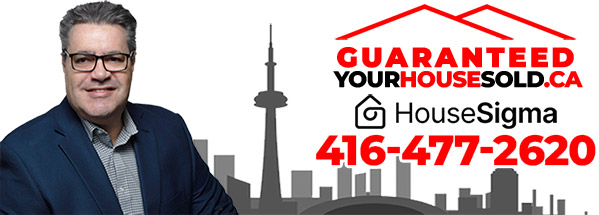Do you ever wonder if you can actually buy a home in places like Toronto, Milton, Mississauga, or Georgetown? 
This post is like your friendly guide! We’re going to talk all about understanding your money and what you can really afford when looking for a home in the Greater Toronto Area (GTA) and nearby spots like Guelph and Acton. It’s super important to know your budget before you start dreaming about houses with big backyards or cool kitchens. Knowing your numbers helps you look for houses that are just right for YOU, without getting stressed about money later. Let’s make figuring out your budget easy peasy!
What Does “Affordability” Really Mean Anyway?
Okay, “affordability” sounds like a big, grown-up word, right? But it’s pretty simple! It just means figuring out how much house you can buy without your wallet crying for help.
It’s not just about the price tag you see on the house listing online. Nope! Affordability looks at a few things all together:
- Your Income: How much money your family makes each month or year.
- Your Savings: How much money you’ve saved up for a down payment (that’s a chunk of money you pay upfront).
- Your Debts: Things like car payments, student loans, or credit card bills you need to pay back.
- Monthly House Costs: This isn’t just the mortgage payment (the money you pay back to the bank for lending you money to buy the house). It also includes stuff like property taxes (money for your town), home insurance (just in case something bad happens), and maybe heating and electricity bills.
So, affording a home means you can pay the price tag and all those extra monthly costs comfortably, without having to eat only noodles every night! 
Why Knowing Your Budget is Super Important (Especially Now!)
Knowing your budget is like having a superpower when you’re looking for a home, especially in busy places like the GTA. Why is it SO important right now?
- Houses Can Be Pricey: Let’s be honest, homes in areas like Milton, Mississauga, and Burlington can cost a lot. Knowing your budget stops you from falling in love with a house you can’t actually buy. It keeps things real!
- Things Change Fast: Sometimes house prices go up, sometimes interest rates (the extra money you pay the bank for the loan) change. Knowing your safe spending limit helps you stay steady even when the market feels bouncy.
- Less Stress! House hunting is exciting, but it can be stressful too. When you know exactly how much you can spend, a lot of that money worry disappears. You can focus on finding the right home in your price range.
- Makes You Look Good to Sellers: When you know your budget (and especially if you have a mortgage pre-approval – more on that soon!), sellers see you as a serious buyer. They know you’re ready!
- Helps You Plan Everything Else: Buying a home costs more than just the house price. There are lawyer fees, moving costs, maybe new furniture… Knowing your main budget helps you plan for all those extras too.
Think of your budget as your treasure map for house hunting. X marks the spot for homes you can actually afford!
Using a Home Affordability Calculator GTA: Your Magic Money Tool!
Okay, imagine a magic calculator 
How does this magic work? It’s pretty easy:
- You type in some numbers: Usually, it asks for things like:
- How much money you make (your income).
- How much money you’ve saved for a down payment.
- How much you pay each month for other debts (like car loans).
- The calculator does some math: It uses some standard rules that banks often use.
- It gives you an estimate: It tells you roughly the house price you might be able to afford.
**Why use a **Home Affordability Calculator GTA?
- It’s Quick and Easy: Gets you a basic idea super fast.
- Gives You a Starting Point: Helps you see if your dream of owning a home is close or if you need to save a bit more.
- Lets You Play Around: You can change the numbers (like a bigger down payment) to see how it affects the result.
Super Important Note: This calculator is just an estimate! It’s like a first guess. It doesn’t know everything about your specific situation, and it doesn’t promise you’ll get a loan for that amount. It’s a great first step, but the next step is even more important…

Getting Your Mortgage Pre-Approval Ontario: Like a VIP Pass for House Hunting!
Okay, the affordability calculator gave you an idea. Now, let’s get serious! Getting a mortgage pre-approval Ontario is like getting a golden ticket or a VIP pass for house hunting.
What is it? A mortgage pre-approval is when you go to a bank or a mortgage expert, show them all your money details (income papers, savings proof, debt info), and they tell you exactly how much money they are likely willing to lend you for a house. They’ll also tell you what your interest rate might be.
**Why is a *mortgage pre-approval Ontario* SO amazing?**
- You Know Your REAL Budget: This isn’t a guess like the calculator. This is the bank saying, “Yep, based on your info right now, we’d likely lend you up to THIS amount.” Now you know your actual price limit!
- Shows Sellers You’re Serious: When you make an offer on a house and you have a pre-approval letter, the seller knows you’ve done your homework and you can probably get the money. This makes your offer much stronger!
- Speeds Things Up: When you find the perfect house, having your pre-approval ready makes the whole buying process smoother and faster.
- Locks In An Interest Rate (Sometimes): Often, a pre-approval will hold a specific interest rate for you for a certain time (like 90 or 120 days). If rates go up during that time, you still have your lower rate! (If they go down, you usually get the lower rate too. Win-win!)
Getting pre-approved is usually free and doesn’t mean you have to take the loan from that bank. But it’s maybe the most important step in planning your GTA real estate budget planning. Don’t skip it! Talk to a mortgage specialist or your bank to get started.
How Much Can I Afford Milton Home Hunt?
Milton is a wonderful place! Lots of families love it there. But when you’re thinking, “How much can I afford Milton home?”, remember that where you buy matters for your budget.
Here’s what to think about for Milton:
- Property Taxes: Every town charges property tax to pay for things like schools, parks, and roads. Milton will have its own tax rate. When you get pre-approved, the bank will estimate this, but it’s good to know it’s part of your monthly cost.
- Home Prices: Homes in different parts of Milton might have different price ranges. Some areas might be newer with bigger homes, others might be older with smaller ones. Knowing your pre-approved budget helps you look in the right Milton neighbourhoods.
- Commuting Costs: Do you need to drive to work in Toronto or Mississauga? Think about gas money or GO Train costs. That’s part of your overall budget too!
- What You Get: For your budget in Milton, what kind of house can you expect? A townhouse? A detached home? How many bedrooms? Looking at current listings within your pre-approved price range helps you see what’s realistic.
Planning your budget specifically for Milton means looking at these local details after you know your overall borrowing power from your pre-approval.
Planning Your Burlington House Buying Budget
Burlington is another awesome spot, close to the lake! Thinking about a Burlington house buying budget involves similar steps to Milton, but with Burlington‘s own flavour.
- Burlington Property Taxes: Just like Milton, Burlington has its own property tax rate. This will be part of your monthly carrying costs.
- Range of House Prices: Burlington has many different neighbourhoods, from lakeside areas to places closer to the escarpment. Prices can vary a lot. Your budget will guide you to the areas that fit your finances.
- Lifestyle Costs: Near the lake? Maybe you want a boat (that’s an extra cost!). Closer to highways for work? Factor in travel time and costs.
- Market Feel: Is Burlington super busy with buyers right now? Talking to a local real estate expert can help you understand if you might need to offer exactly the asking price, or maybe a little more, and how that fits your budget.
Your Burlington house buying budget starts with your mortgage pre-approval, then gets specific when you look at houses and costs right there in Burlington.
Figuring Out Mississauga Property Affordability
Mississauga is a big city with lots to offer! When you’re trying to figure out Mississauga property affordability, you need to think about its size and variety.
- Wide Range of Prices: Mississauga has everything from super fancy condos to huge houses to more affordable townhomes and older apartments. Your pre-approved amount will really point you towards certain areas or types of homes.
- Neighbourhood Differences: Property taxes can even vary slightly within a large city. Commuting costs change a lot depending if you live near a GO station, a highway, or close to where you work within Mississauga.
- Condo Fees: If you’re looking at condos or some townhouses in Mississauga, you’ll likely have monthly condo fees. These cover things like keeping the building clean, fixing the roof, or maybe a pool or gym. These fees MUST be part of your budget – banks definitely count them!
- Competition: Some parts of Mississauga are very popular. Knowing your firm budget (thanks, pre-approval!) helps you act fast and confidently if you find the right place.
Mississauga property affordability means matching your budget to the specific type of home and neighbourhood you want within this large and diverse city.
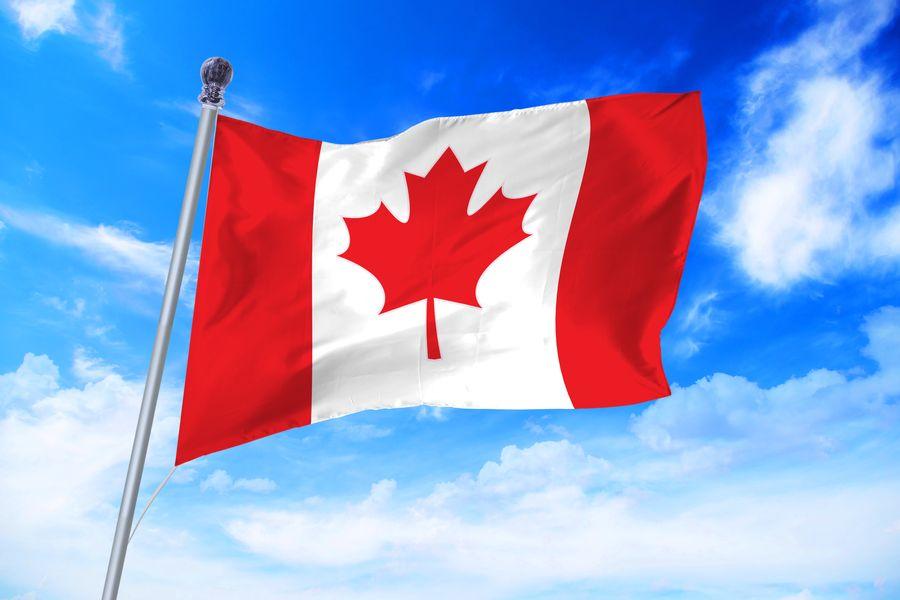
Getting Ready for Georgetown Mortgage Qualification
Georgetown offers that small-town feel while still being close to things. Getting ready for Georgetown mortgage qualification is the same big step as getting pre-approved anywhere else in Ontario. The bank or lender wants to know you’re a good bet to pay back the home loan.
What do they look at?
- Your Job & Income: Do you have a steady job? How much do you earn? They want to see proof, like pay stubs or letters from your boss.
- Your Down Payment: How much money have you saved? The bigger the down payment, the better! (In Canada, you usually need at least 5% down, but sometimes more depending on the house price).
- Your Debts: What other loans or monthly payments do you have? (Car, credit cards, student loans). They compare your debts to your income. This is called your Debt Service Ratio. They have rules about how high this can be.
- Your Credit Score: This is like your report card for borrowing money. Have you paid bills on time in the past? A good credit score really helps!
Getting ready for Georgetown mortgage qualification means getting these ducks in a row: gather your income proof, save that down payment, try to pay down high-interest debt if you can, and check your credit score. A mortgage broker can give you great advice here!
Don’t Forget These Halton Hills Home Buying Costs! (And Costs Anywhere in GTA!)
Okay, you know your mortgage budget. You’ve factored in property taxes and maybe condo fees. But wait, there’s more! 
- Land Transfer Tax: When a property changes owners in Ontario, the government charges a tax. There’s a provincial one, and if you buy in Toronto, there’s a city one too (ouch!). This can be a few thousand dollars or much more, depending on the house price. First-time home buyers often get a rebate or discount, which helps!
- Lawyer Fees (Legal Fees): You need a real estate lawyer to handle all the paperwork, check the title (making sure the seller really owns it!), and register the home in your name. Budget for this!
- Home Inspection: Before you buy, you’ll likely want a professional home inspector to check the house for hidden problems (like a leaky roof or old furnace). This costs money but can save you HUGE headaches later.
- Home Appraisal: The bank lending you money will probably want their own expert (an appraiser) to confirm the house is worth the price you’re paying. Sometimes you have to pay for this.
- Home Insurance: You need to have home insurance set up before you even get the keys. You’ll pay this yearly or monthly.
- Moving Costs: Hiring movers? Renting a truck? Buying pizza for friends who help?
It all adds up!
- Utility Hook-ups: Sometimes there are small fees to set up electricity, water, or internet in your name.
- Immediate Repairs or Furnishings: Does the house need a quick coat of paint? Do you need a new bed or sofa? Maybe save a little extra for making the new place feel like home.
Phew! That sounds like a lot. But don’t panic! Your realtor and mortgage broker can help you estimate these Halton Hills home buying costs (or costs wherever you buy). The key is to know they exist so you can add them to your overall GTA real estate budget planning.
GTA Real Estate Budget Planning Tips for Everyone
Whether you’re buying in Milton, Mississauga, Georgetown, Guelph, Acton, or right downtown Toronto, good GTA real estate budget planning uses the same smart rules:
- Start Saving Early: The more you save for a down payment, the less you have to borrow, and the lower your monthly payments might be. Every little bit helps!
- Know Your Numbers: Don’t guess! Use an online Home Affordability Calculator GTA first, then get that all-important Mortgage Pre-Approval Ontario.
- Track Your Spending: See where your money goes each month. Are there places you could save a little more for your down payment or moving costs?
- Think Long Term: A house is a big commitment. Make sure your budget allows you to still save for other goals (like retirement or vacations) and handle unexpected things.
- Add a Buffer: Try to budget a little less than the absolute maximum the bank says you can afford. This gives you breathing room if costs go up or something unexpected happens.
- Don’t Forget the “Other” Costs: Always add those closing costs (land transfer tax, lawyer, etc.) and moving expenses into your plan.
- Talk to Experts: A good realtor knows the local market (like Mississauga property affordability trends). A good mortgage broker can help you understand loans and Georgetown mortgage qualification. They are your budgeting buddies!
Budgeting as a First Time Home Buyer Budget
Buying your very first home? Awesome! 
- Look into First-Time Buyer Programs: The government sometimes has programs to help first-time buyers! This could be help with your down payment (like the Home Buyers’ Plan where you can borrow from your RRSPs) or rebates on Land Transfer Tax. Ask your realtor or mortgage broker about these!
- Start Small, Dream Big: Maybe your first home isn’t your “forever” home. Perhaps a smaller condo or townhouse in Mississauga or Milton fits your budget now. That’s okay! Getting into the market is a great step.
- Don’t Forget Furniture & Stuff: When you rent, maybe your place came with appliances. Your first house might not! You might need to buy a lawnmower, curtains, maybe even a fridge or stove. Add a little “setting up house” money to your budget.
- Practice Paying Mortgage Costs: Months before you buy, try “pretend” paying your estimated mortgage payment, property taxes, and utilities into a savings account. See how it feels! Plus, you save more money this way.
- Ask Lots of Questions: No question is silly! Ask your parents, friends who own homes, your realtor, your lawyer, your mortgage person. Gather all the info you can.
Your first time home buyer budget needs a bit of extra padding for those setup costs and learning curves.

Figuring Out Your Upgrading Home Budget
Ready for a bigger place? Moving from a condo to a house? Or just need more space? Planning your upgrading home budget has a few extra moving parts:
- Know Your Home’s Value: How much is your current place worth? A realtor can help you figure this out (it’s called a home evaluation). This tells you how much money (equity) you might have locked inside your current home.
- Calculate Your Equity: Your equity is roughly what your home is worth MINUS how much you still owe on the mortgage. This equity can often be used as a big chunk (or all!) of your down payment on the new, bigger home.
- Costs of Selling AND Buying: Remember, you’ll have costs for selling your current place (like realtor commissions, maybe some staging) AND costs for buying the new one (land transfer tax, lawyer fees again!). Budget for both sides of the move.
- Timing is Tricky: Will you sell your old place before you buy the new one, or after? This affects your money flow. Sometimes people need a special short-term loan called a “bridge loan” if the timing overlaps. Talk to your mortgage advisor about this!
- Bigger Home = Bigger Bills? Often (but not always!), a bigger home means higher property taxes, more heating/cooling costs, and potentially more maintenance. Factor potential increases into your new monthly budget.
Your upgrading home budget needs careful planning around the money you’ll get from your old home and the costs of the new, larger one.
Making a Downsizing Home Budget Work for You
Thinking of moving to a smaller, perhaps easier-to-manage home? Maybe the kids have moved out, or you want to free up some cash. Planning your downsizing home budget can be smart!
- Unlock Your Equity: Selling your larger home might leave you with a good amount of money (equity) after paying off any remaining mortgage. This is the cool part of downsizing!
- Buy Smaller, Maybe Cheaper: Your new, smaller place might cost less than what you sell your old place for. This could mean a smaller mortgage, or maybe no mortgage at all! Woohoo!
- Don’t Forget Costs: You still have selling costs for the big place and buying costs for the small place (realtor, lawyer, land transfer tax, moving). Make sure the money you free up still covers these comfortably.
- Lower Monthly Bills?: A smaller place often means lower property taxes, lower utility bills, and maybe less maintenance cost. This can free up monthly cash flow.
- What Will You Do With Extra Money? If you do end up with extra cash after the move, what’s the plan? Pay off debt? Invest? Travel? Having a goal makes downsizing even sweeter.
- Consider Accessibility: If you’re downsizing for retirement, think about things like stairs. Does the new place work for you long-term?
Your downsizing home budget should focus on how much money you’ll free up and how that helps your overall financial picture.
Your Relocating Home Budget: Moving to or From the GTA
Moving to the GTA from somewhere else? Or leaving the GTA for a new adventure? Your relocating home budget needs extra thought:
- Cost of Living Differences: Is where you’re moving to more or less expensive than where you live now? This isn’t just house prices! Think about groceries, gas, car insurance – they can vary a lot. Research the cost of living in the new area.
- House Price Differences: If you’re selling in a less expensive market and buying in the GTA real estate budget planning world, you’ll need a solid plan. If you’re selling in the GTA and moving somewhere cheaper, you might free up cash. Understand the price differences clearly.
- Job & Income: Do you have a job lined up in the new place? Will your income be higher, lower, or the same? This hugely impacts your borrowing power and budget.
- Costs of the Physical Move: Moving a long distance costs more than moving across town. Get quotes from moving companies early! Factor in travel costs for house-hunting trips too.
- Taxes! Remember Land Transfer Tax in Ontario if you’re moving to the GTA. If you’re moving out of province, understand the taxes where you’re going.
- Local Experts are Key: If moving to the GTA, work with a local realtor and mortgage broker who understands places like Milton, Mississauga, and Georgetown. They know the nuances of how much can I afford Milton home searches, for example.
Your relocating home budget needs extra layers for travel, cost of living changes, and understanding two different housing markets.
Feeling Better About Your Budget? Let’s Recap!
Wow, we covered a lot, but hopefully, it feels simpler now! Figuring out your home buying budget in the GTA doesn’t have to be a giant mystery.
Remember the key steps:
- Dream a little, then get real about your income, savings, and debts.
- Play with a Home Affordability Calculator GTA for a first guess.
- Get that super important Mortgage Pre-Approval Ontario to know your real borrowing power.
- Think about location specifics, whether it’s Mississauga property affordability or costs in Milton or Burlington.
- NEVER forget the extra Halton Hills home buying costs (closing costs, moving, etc.).
- Tailor your budget if you’re a first time home buyer budget, upgrading home budget, downsizing home budget, or relocating home budget person.
- Talk to the pros – realtors and mortgage brokers are your friends!
Knowing your budget gives you confidence and control. It turns a stressful process into an exciting treasure hunt for the perfect home that fits you and your wallet.
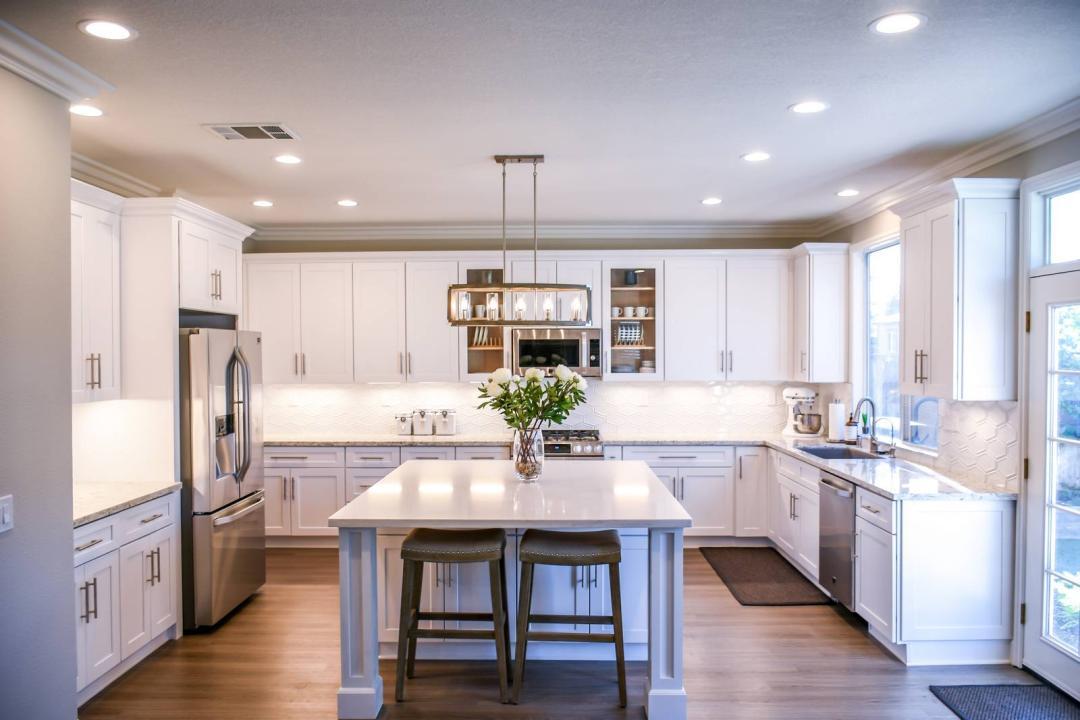
Still Have Questions? FAQ Time!
Here are some common questions people ask about figuring out their home budget in the GTA:
Q1: How much down payment do I REALLY need in Ontario?
A1: It depends on the home price. For homes $500,000 or less, you need at least 5% down. For homes between $500,001 and $1 million, you need 5% of the first $500,000 and 10% of the part above $500,000. For homes over $1 million, you usually need at least 20% down. Talk to a mortgage pro for exact numbers!*
**Q2: Does a *Home Affordability Calculator GTA* guarantee I’ll get a mortgage?**
*A2: Nope! Calculators are just estimates based on simple info. Getting a Mortgage Pre-Approval Ontario is where the bank looks at your *real* documents and gives you a much more solid number.*
Q3: Are houses in Milton cheaper than Mississauga?
A3: Generally, house prices can be different between cities like Milton and Mississauga, and even within different neighbourhoods in those cities. Prices change, so it’s best to look at current listings in your specific budget (after pre-approval!) and talk to a local realtor who knows the Mississauga property affordability and how much can I afford Milton home markets.*
Q4: What’s the biggest surprise cost for first-time home buyers?
A4: Often, it’s the Land Transfer Tax. Because it’s paid at closing and can be thousands of dollars, it catches people off guard if they haven’t budgeted for it. Remember to ask about first-time buyer rebates for this!*
Q5: How long does a mortgage pre-approval last?
A5: Usually, a pre-approval is good for about 90 to 120 days. The lender will often “hold” an interest rate for you during that time too. If you don’t buy a house within that window, you’ll likely need to get pre-approved again.*
Q6: Can I figure out my budget myself, or do I need help?
*A6: You can start with online calculators and tracking your own spending. But to get the *best* and most accurate picture, especially for Georgetown mortgage qualification or anywhere in Ontario, talking to a mortgage broker or bank specialist is highly recommended. They do this every day!*
**Q7: Does my *GTA real estate budget planning* need to include saving money after I buy?**
A7: Yes, definitely! Your budget shouldn’t use up every single penny. You still need money for emergencies (what if the furnace breaks?), regular savings, and enjoying life. Don’t stretch yourself too thin!*
So, are you ready to take control of your home buying journey? Figuring out your budget is the very first, most powerful step you can take. It makes everything else – house hunting, making offers, and finally getting those keys – so much smoother and more exciting!
What are your biggest questions about budgeting for a home in the GTA? Share them in the comments below! Or, if you’re ready to take the next step and get serious about your budget, reach out to a trusted mortgage professional or real estate advisor today! Let’s find you a home you love AND can afford!

 Can You REALLY Afford a Home in the GTA?! Your Super Simple Budget Guide!
Can You REALLY Afford a Home in the GTA?! Your Super Simple Budget Guide!


















 Learn how each process helps you when buying a home in Ontario. Don’t forget to download
Learn how each process helps you when buying a home in Ontario. Don’t forget to download 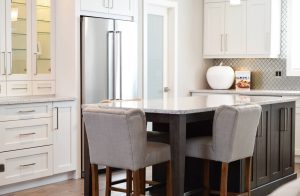


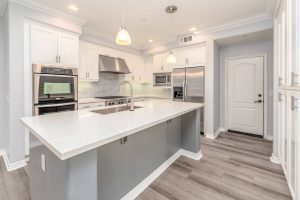


 Discover the perks, costs, and responsibilities that come with owning a <a
Discover the perks, costs, and responsibilities that come with owning a <a 
